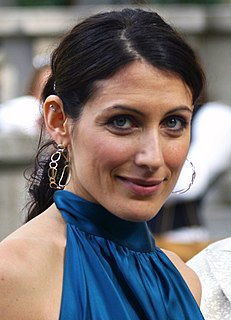A Quote by Les Standiford
Never open your story with a character thinking, I advise my students. As a further precaution, don’t put a character in a room alone – create a friend, a bystander, a genie, for God’s sake, any sentient creature with whom your main character can converse, perhaps argue or, better yet, engage in some action. If a person is out and doing, it’s more likely that something interesting might happen to her or him. Shut up in a room with only his thoughts for company well, that way lies fictional disaster.
Quote Topics
Action
Advise
Alone
Any
Argue
Better
Character
Company
Converse
Create
Creature
Disaster
Doing
Engage
Fictional
Friend
Further
Genie
God
Happen
Her
Him
His
Interesting
Lies
Likely
Main
Main Character
Might
More
Never
Only
Open
Out
Perhaps
Person
Precaution
Put
Room
Sake
Sentient
Shut
Shut Up
Some
Something
Something Interesting
Story
Students
Thinking
Thoughts
Up
Way
Well
Whom
Your
Related Quotes
I actually take images of things and put them up around the wall and in a room. I set a room aside. It might be colors, it might be animals, or energy and words. And I'll just leave it there, so it begins to work on my subconscious when I think about the character. Which gives me some latitude to be really flexible and spontaneous but within the context of the character and the world of the character without having to think about it. Or I'll look at something or read something and let it work on my subconscious mind.
I think it's hard to differentiate between your wrestling character and your real character - you kind of end up being both. I've always been my wrestling character in and out of the ring and in and out of the dressing room, and I was always really respected in the dressing room by the other wrestlers.
Thoughts mold your features. Thoughts lift your soul heavenward or drag you toward hell. … As nothing reveals character like the company we like and keep, so nothing foretells futurity like the thoughts over which we brood. … To have the approval of your conscience when you are alone with your thoughts is like being in the company of true and loving friends. To merit your own self-respect gives strength to character. Conscience is the link that binds your soul to the spirit of God.
Within a single scene, it seems to be unwise to have access to the inner reflections of more than one character. The reader generally needs a single character as the means of perception, as the character to whom the events are happening, as the character with whom he is to empathize in order to have the events of the writing happen to him.
I don't think I ever relinquish a person I have known, and surely not my fictional characters. I see them, I hear them, with a clarity that I would call hallucinatory if hallucination didn't mean something else ... A character whom we create can never die, any more than a friend can die ... Through [my characters] I've lived many parallel lives.
Your opening should give the reader a person to focus on. In a short story, this person should turn up almost immediately; he should be integral to the story's main action; he should be an individual, not just a type. In a novel, the main character may take longer to appear: Anna Karenina doesn't show up in her own novel until chapter eighteen.


































